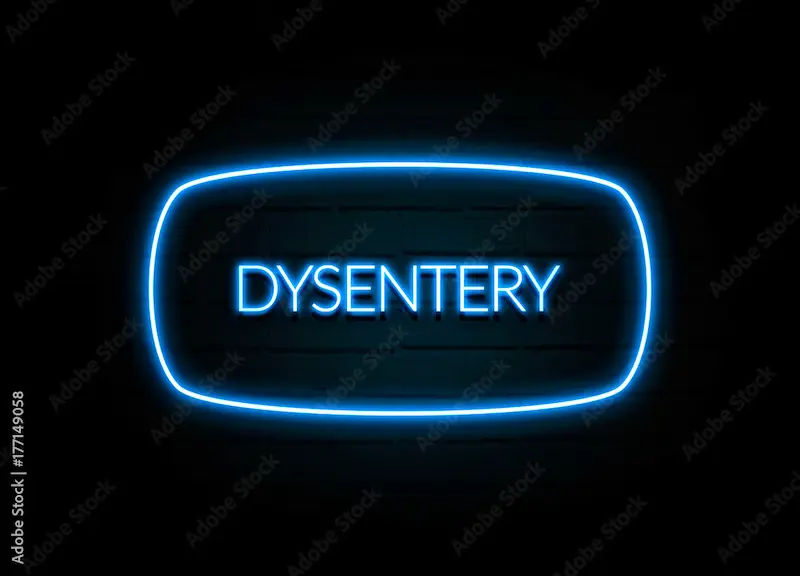Pain Clinic Explained: A Guide to Specialised Care
Learn about pain clinics and how they provide specialised care for chronic pain. Explore treatments, therapies, and support options to improve quality of life.


Introduction
Living with persistent pain can be an isolating and exhausting experience, impacting every aspect of your life. If you've tried various treatments without lasting success, you may have heard the term "pain clinic" suggested by your doctor. But what does a pain clinic actually do? Far more than just prescribing medication, a pain clinic is a specialised medical facility dedicated to diagnosing, managing, and treating complex pain conditions. It operates on a fundamental principle: chronic pain is a disease in itself, requiring a multifaceted, holistic approach. This guide will walk you through everything you can expect from a pain management clinic, from the initial assessment to the diverse range of therapies offered by a dedicated team of experts. We'll demystify the process and show you how these clinics aim to do more than just numb pain; they strive to restore your function and reclaim your quality of life.
Understanding the Different Types of Pain
Not all pain is the same, and understanding the difference is key to understanding the role of a pain clinic.
Acute Pain: The Body's Alarm System
Acute pain is a direct response to tissue damage, like from a cut, broken bone, or surgery. It's sharp, sudden, and usually temporary. It serves a biological purpose: to alert you to injury and protect the area so it can heal. This type of pain typically resolves as the underlying cause heals, often managed effectively by primary care doctors or surgeons.
Chronic Pain: When the Alarm Doesn't Shut Off
Chronic pain is different. It persists for weeks, months, or even years beyond the normal healing time. Sometimes, it occurs without any obvious past injury or evidence of body damage. Conditions like lower back pain, arthritis, fibromyalgia, and neuropathy fall into this category. Chronic pain is not just a symptom; it's a complex condition that involves changes within the nervous system itself. This is where a pain clinic becomes essential, as it specialises in treating this malfunction of the nervous system's pain pathways.
Consult a Pain Management Specialist for the best advice
Who Needs a Pain Management Clinic?
You might be a candidate for a pain management clinic if:
Your pain has lasted for more than three months.
Your pain is severe enough to interfere with your daily activities, work, or sleep.
Previous treatments from your primary care doctor (like rest, basic physical therapy, or over-the-counter medications) have provided insufficient relief.
You have a complex pain condition like failed back surgery syndrome, complex regional pain syndrome (CRPS), or widespread nerve pain.
You want to explore non-surgical back pain treatment options or alternatives to long-term opioid use.
Your pain is affecting your mental health and emotional well-being.
What to Expect at Your First Pain Clinic Visit
The first appointment at a pain clinic is comprehensive and designed to build a complete picture of your pain experience.
The Comprehensive Initial Assessment
Your first visit will primarily be a lengthy consultation. You'll speak with a pain medicine physician who will ask detailed questions not just about the pain itself (location, intensity, type: burning, aching, stabbing), but also about how it affects your mood, sleep, relationships, and ability to work. This holistic view is crucial for crafting an effective treatment plan.
Review of Medical History and Diagnostics
Bring any relevant medical records, MRI/CT scan reports, and a list of medications you've tried. The physician will review these and may perform a physical examination focused on your neurological and musculoskeletal systems. They are detectives piecing together clues to understand the source and mechanisms of your pain.
Setting Realistic Goals for Treatment
A key part of the first visit is setting realistic expectations. The goal of a pain clinic is rarely to achieve "zero pain," which is often not feasible for chronic conditions. Instead, the focus is on functional improvement, increasing your ability to perform daily tasks, improving sleep, reducing medication reliance, and enhancing your overall quality of life. You'll work with your doctor to set specific, achievable goals.
The Multidisciplinary Team of Experts
The core strength of a pain clinic is its multidisciplinary pain management team. You won't find just one doctor; you'll find a collaborative group of specialists all working together on your behalf.
The Pain Medicine Physician
This is usually a medically trained doctor (often with a background in anaesthesiology, physical medicine and rehabilitation, or neurology) who is fellowship-trained in pain management. They lead your care team, diagnose your condition, and perform interventional procedures.
Physical and Occupational Therapists
These specialists are vital for functional improvement. They design exercise programs to strengthen supporting muscles, improve flexibility, and retrain your body to move correctly without fear of pain. They provide practical strategies for performing everyday tasks with less discomfort.
The Role of Psychology in Pain Management
Chronic pain and mental health are deeply connected. Psychologists or therapists specializing in pain teach techniques like Cognitive Behavioral Therapy (CBT) to help you change the way you perceive and respond to pain. They address the anxiety, depression, and frustration that often accompany chronic pain, which is a critical component of holistic pain management.
Common Treatments and Therapies Offered
Pain clinics offer a wide arsenal of treatments, often used in combination for a synergistic effect.
Medication Management
Specialists are experts in using medications wisely. This includes not only analgesics but also adjuvant medications like antidepressants or anticonvulsants that can calm overactive nerves. The focus is on finding the most effective regimen with the fewest side effects.
Interventional Pain Procedures (Injections and Blocks)
This is a hallmark of interventional pain management. These minimally invasive procedures can diagnose the pain source or provide significant relief. Examples include:
Epidural steroid injections: To reduce inflammation around spinal nerves.
Nerve blocks: To temporarily numb a specific nerve or nerve group.
Radiofrequency ablation: Using heat to disable nerves from sending pain signals for longer-term relief (often 6-12 months).
Joint injections: For arthritis pain in facets, sacroiliac joints, or knees.
Advanced Neuromodulation Techniques
For severe, treatment-resistant pain, clinics may offer advanced options like spinal cord stimulators. This device is implanted and sends low-level electrical signals to the spinal cord to mask pain signals before they reach the brain, effectively "scrambling" the pain message.
Complementary and Alternative Medicine (CAM)
Many clinics integrate evidence-based alternative therapies such as acupuncture, medical massage, or biofeedback, which teaches you to control bodily processes like heart rate to reduce pain.
Conditions Commonly Treated at a Pain Clinic
Pain clinics treat a vast array of conditions, including but not limited to:
Chronic back and neck pain (e.g., from disc disease, spinal stenosis)
Neuropathic pain (e.g., diabetic neuropathy, post-herpetic neuralgia)
Arthritis and joint pain
Headaches and migraines
Cancer-related pain
Complex Regional Pain Syndrome (CRPS)
Fibromyalgia
Post-surgical pain syndromes
The Ultimate Goal: Restoring Function and Improving Quality of Life
The mission of every reputable pain clinic transcends simple pain reduction. The true measure of success is getting you back to your life. Can you play with your grandchildren again? Return to work? Enjoy a full night's sleep? By combining medical, physical, and psychological strategies, pain clinics empower you to manage your condition actively, reduce disability, and find a new sense of normalcy. If your chronic pain is limiting your daily function, consulting a pain specialist online with Apollo24|7 can be a great first step to discuss if a pain clinic referral is right for you.
Conclusion
Navigating life with chronic pain is a challenging journey, but you don't have to walk it alone. A pain management clinic provides a roadmap and a dedicated team of guides to help you find your way. By moving beyond a one-size-fits-all approach and leveraging a diverse toolkit of advanced and conventional therapies, these specialised centers offer hope and practical solutions. They recognize that effective pain management is about healing the whole person, not just silencing a symptom. If you've been struggling with pain that hasn't responded to standard care, taking the step to seek out a pain clinic could be the pivotal decision that helps you regain control and move toward a more active, fulfilling life.
Consult a Pain Management Specialist for the best advice
Consult a Pain Management Specialist for the best advice

Dr.sorabh Garg
Pain Management Specialist
19 Years • MBBS, DNB - Anaesthesia
New Delhi
Apollo Spectra Hospitals, New Delhi
Dr. K.v.sampath Kumar
Anaesthesiologist
5 Years • MD (Anaesthesia)
Hanamkonda
Apollo Clinic Hanamkonda, Hanamkonda

Dr. Navaneethan Subramanian
Anaesthesiologist
15 Years • MBBS, DNB, Clinical Fellowship in Liver Transplant Anesthesia
Hyderabad
Apollo Hospitals Jubilee Hills, Hyderabad
More articles from General Medical Consultation
Frequently Asked Questions
1. Do I need a referral to see a pain management specialist?
Many pain clinics do require a referral from your primary care physician or another specialist. This ensures that basic treatments have been tried and that your records are sent ahead for review. It's best to check with the specific clinic and your insurance provider for their requirements.
2. Will the pain clinic just prescribe strong painkillers?
No. While medication management is one tool, the goal is comprehensive care. Most reputable clinics emphasize minimizing reliance on opioids through a variety of other interventions like physical therapy, injections, and psychological strategies. They specialise in finding safer, longer-term solutions.
3. What is the difference between a pain clinic and an orthopedic surgeon?
An orthopedic surgeon primarily diagnoses and treats musculoskeletal conditions with a focus on surgical solutions. A pain clinic focuses on non-surgical chronic pain treatment and management. Many patients are referred to a pain clinic to avoid surgery or to manage pain after surgery.
4. Are the injections and procedures painful?
Most interventional procedures use local anaesthesia to numb the area, so any discomfort is minimized. You might feel some pressure, but severe pain is uncommon. The physicians are highly trained in making the experience as comfortable as possible.
5. How long does it take for treatments to work?
This varies greatly. Some injections provide relief within a few days. Other treatments, like physical therapy or medication adjustments, can take several weeks to show significant improvement. Your doctor will discuss a realistic timeline for your specific treatment plan.
.webp)



 A Targeted Cancer Treatment Guide.webp)